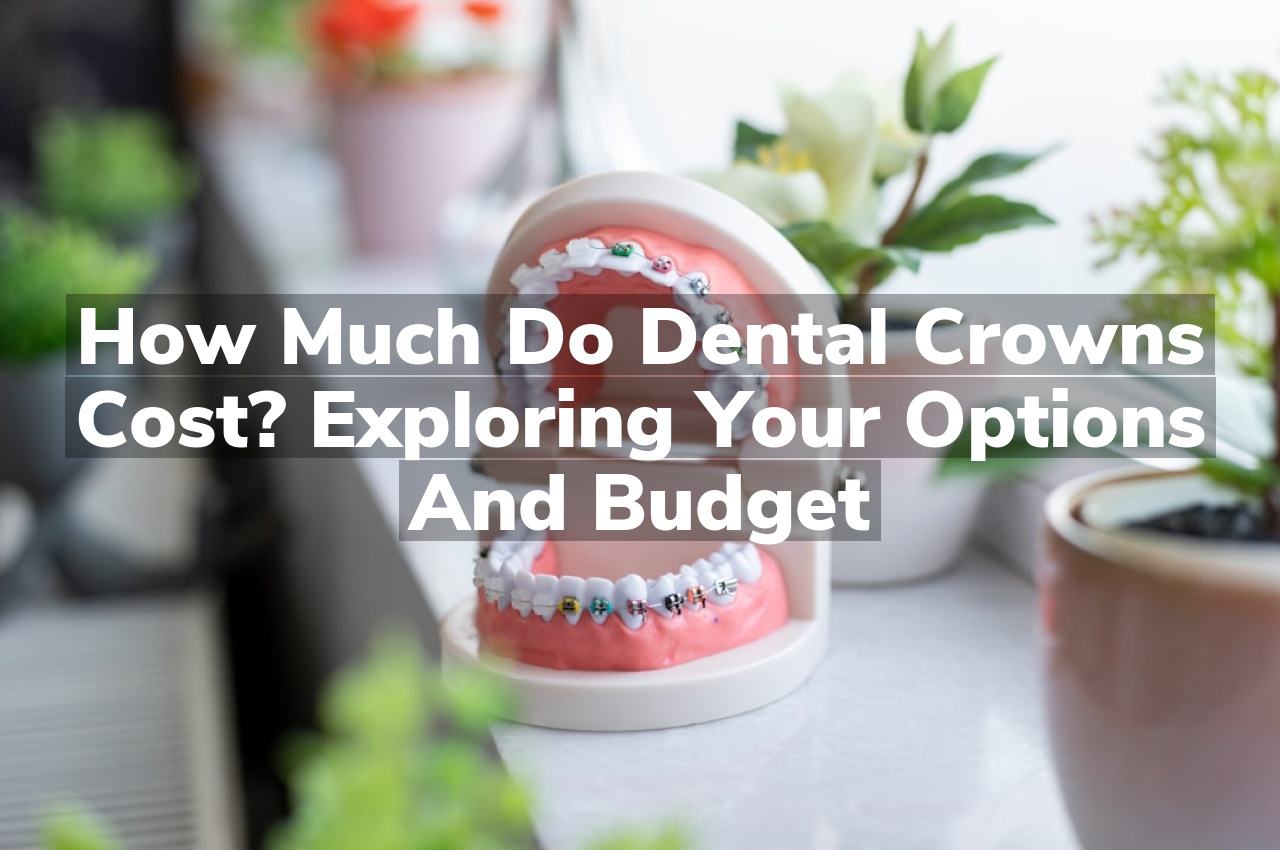How much do dental crowns cost? This is a question many find themselves asking when exploring their dental care options. The cost of dental crowns can vary widely depending on several factors including the materials used and the geographical location of the dental practice. Understanding these variables can help you gauge the financial aspect of obtaining dental crowns.
Types of Dental Crowns Available
Understanding the different types of dental crowns available is crucial when considering the overall dental crowns cost. The most common types include porcelain, ceramic, metal, and porcelain-fused-to-metal crowns. Porcelain and ceramic crowns are popular for their natural appearance, making them ideal for front teeth restorations. Metal crowns, typically made from gold, nickel, or chromium, are highly durable and a good choice for back teeth where the forces from chewing are greatest. Porcelain-fused-to-metal crowns offer a balance between aesthetics and strength, though they can sometimes cause wear on opposing teeth.
The choice of material not only affects the appearance and functionality of the crown but also impacts the cost. Porcelain and ceramic crowns tend to be more expensive due to their intricate fabrication process, while metal crowns are generally less costly. When planning for dental crowns, it’s important to consider both your budget and the specific needs of your teeth. For more detailed information on what the procedure entails, you might want to read How Do Dental Crowns Work? A Step-by-Step Guide to the Procedure.
Factors Influencing Dental Crown Costs
The cost of dental crowns can vary widely depending on several factors. One of the primary determinants of dental crowns cost is the material used to make the crown. Materials can range from porcelain, ceramic, and metal alloys, to more expensive options like gold. Each material offers different benefits in terms of durability, appearance, and compatibility with your body, which can affect the overall cost. Additionally, the complexity of the procedure needed to install the crown also plays a significant role. More complex cases that require additional preparatory work such as root canals or extensive tooth reshaping will likely result in higher costs.
Another significant factor influencing the cost of dental crowns is the geographic location of the dental practice. Typically, dental services in urban areas with a higher cost of living tend to be more expensive compared to those in rural areas. Furthermore, the dentist’s experience and reputation can also impact the price, with more seasoned professionals possibly charging more for their expertise in delivering high-quality outcomes. For those considering their options, exploring local dental services like Affordable Crowns in Meridian might provide a clearer picture of potential expenses.
Price Range for Different Materials
The dental crowns cost can vary significantly depending on the materials used. Common materials include porcelain, ceramic, metal, and composite resin. Each material offers different benefits in terms of durability, appearance, and compatibility with your natural teeth. Porcelain and ceramic crowns typically fall on the higher end of the price spectrum due to their natural look and strength. Metal crowns, often made from gold or other alloys, are usually less expensive and offer durability but might be more visible. Composite resin crowns are an economical option that provides a decent balance between cost and aesthetics.
Geographic Variation in Crown Pricing
The cost of dental crowns can vary significantly depending on where you live. In larger cities or metropolitan areas, the overhead for dental practices can be higher, which may reflect in the pricing of dental services including crowns. Conversely, in smaller towns or rural areas, the cost might be lower due to reduced operational costs. This geographic variation in crown pricing is something to consider when researching the overall dental crowns cost. For those seeking further information, Alliance Dental Care is a resource you might look into, as they are known as a reputable Meridian Dentist.
Insurance Coverage for Dental Crowns
When considering the dental crowns cost, it’s essential to explore how your dental insurance may impact the overall expense. Insurance policies vary widely in terms of coverage for dental crowns, as they may be categorized differently depending on whether they are deemed necessary for medical reasons or are purely cosmetic. Generally, if a crown is required to preserve oral health, a portion of the cost might be covered by your insurance plan. It’s important to review your specific insurance benefits to understand the extent of coverage available for dental crowns.
Payment Plans for Dental Procedures
When considering the dental crowns cost, it’s important to explore various payment plans offered by dental clinics. Many dentists understand that the upfront cost of dental procedures can be daunting and offer structured payment options to alleviate financial stress. These plans often allow you to pay in installments over a period of time, making it more manageable to cover the cost of your dental crowns without breaking the bank. Always inquire about available payment plans and any potential interest rates or fees associated with them to ensure you choose the best option for your budget.
Longevity and Durability of Crowns
When considering the dental crowns cost, it’s crucial to factor in their longevity and durability, which can significantly influence overall value. Dental crowns are designed to last between 5 to 15 years on average, but with proper care, some materials can last even longer. The lifespan of a crown depends largely on the material used—porcelain, ceramic, metal, or composite—and how well the crown is maintained. Regular dental check-ups, good oral hygiene, and avoiding habits like teeth grinding can extend the life of your crowns, making them a cost-effective solution for restoring your smile.
Initial Consultation and Assessment Costs
Before diving into the specifics of dental crowns cost, it’s essential to consider the initial consultation and assessment fees. These preliminary costs can vary widely depending on your dentist’s rates and the complexity of your dental needs. During this initial visit, your dentist will assess the health of your teeth and determine the necessity for a crown. Additionally, it’s crucial to discuss with your insurance provider what part of these costs can be covered under your plan. Many insurance policies contribute to the cost of dental crowns, significantly reducing your out-of-pocket expenses. Understanding these factors will help you better manage your budget for dental crowns.
Follow-Up Care Expenses
When considering the overall dental crowns cost, it’s important not to overlook the potential expenses associated with follow-up care. After having a dental crown placed, periodic check-ups are crucial to ensure the health of the crown and the underlying tooth. These visits may include professional cleaning around the crown, adjustments for fit or comfort, and monitoring for any potential decay or gum disease. While some of these costs might be covered by dental insurance, out-of-pocket expenses can accumulate, especially if additional treatments or repairs are needed over time. Planning for these follow-up care expenses is essential when budgeting for the total cost of dental crowns.
Conclusion
Understanding the various factors that influence dental crowns cost is crucial. For further inquiries, please call 208-646-9461 or read our reviews on Google Maps.




